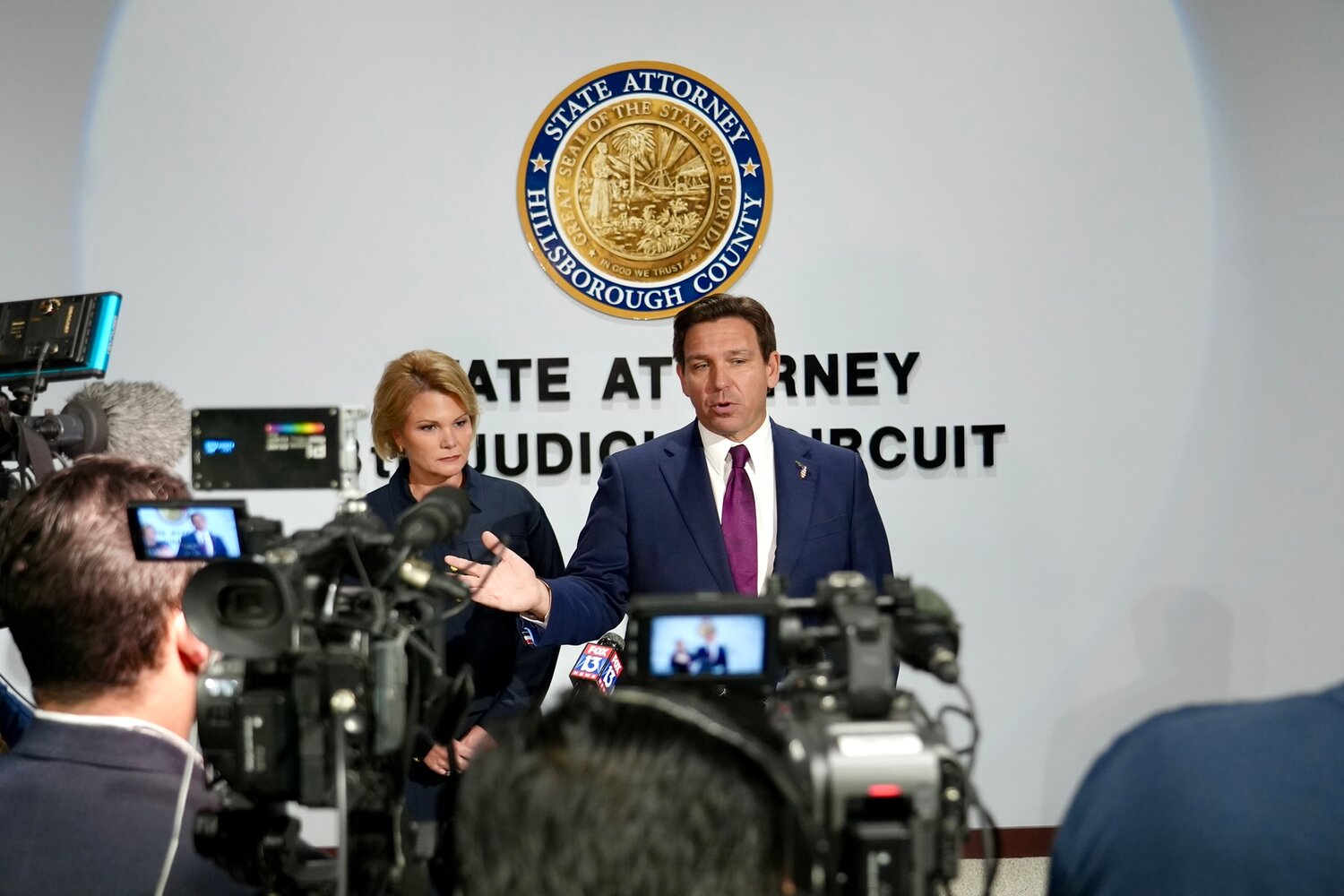Gov. Ron DeSantis is aiming to convene the Florida state legislature for a special session on illegal immigration and other issues less than two months before the legislature is already scheduled to convene. The timing of his efforts have earned the resistance of both leaders of the legislature’s two chambers, both of whom are Republicans like DeSantis. Though DeSantis is imbued by the state constitution to call special sessions, he cannot force the legislature to pass laws – not on any set timeline, and not at any point at all if they choose not to. A statement was issued by Florida House Speaker Daniel Perez and Florida Senate President Ben Albritton saying that they were against any action on illegal immigration before President-elect Donald Trump can address the issue himself, so that Florida may legislate according to his ideology. Against Trump’s Plans? “We are strong supporters of President Trump and stand ready to follow his lead,” the two leaders said. “It is completely irresponsible to get out ahead of any announcements President Trump will make, especially when uninformed or ill-timed state action could potentially impair or impede the success of President Trump’s forthcoming efforts to end illegal immigration, close our borders, and protect the sovereignty of our nation.” Trump himself, meanwhile, left no question which side of the dispute he fell on. “Thank you Ron, hopefully other Governors will follow!” he posted to his Truth Social account on Tuesday. With Trump’s blessing, it’s unclear whether the legislative leaders can effectively stalwart DeSantis’ desired special session. Trump’s Central American Immigration Policies According to his 2024 campaign website, Trump’s top priority on illegal immigration is, as it has been for nearly a decade, the construction of a 450-mile wall at the U.S.-Mexico border. This initiative would not directly affect illegal immigration into Florida beyond the degree to which it affects any state to which such immigrants may settle after entering the country. Trump names four origin countries as targets for deportation: Mexico, Guatemala, Honduras, and El Salvador. These countries, combined with the rest of Central America, account for less than half of Florida’s undocumented immigrant population. Furthermore, Florida’s legislature has limited authority to combat illegal immigration from Central American countries on its own. Under Section 287(g) of the federal Immigration and Nationality Act, the United States Immigration and Customs Enforcement (ICE) can delegate some of their duties to local officials. In Florida, it is the choice of each state and local government to opt in or out of such efforts, but DeSantis appears to believe Trump will expand the law to make participation mandatory. He says he’s spoken with Trump and understands the President-elect’s immigration priorities. Quick Assembly, Slowed Effects Potentially further negating the benefits of an expedited special session is the expected litigation that would oppose Trump’s immigration actions. There are some steps he can take via executive order, but some could potentially be suspended pending the results of federal court cases. DeSantis wants the legislature to convene starting January 27th, one week after Trump’s inauguration. What immigration actions may be taken by Trump in that first week, and what opposition efforts may then be launched, remains to be seen. For now, House Speaker Perez and Senate President Albritton are not satisfied with DeSantis’ leadership in preparing a special session. “While the Governor discussed fragments of ideas for a special session he plans to start in just fourteen days, he did not release any actual bill language or even meaningful details for legislators and our constituents to consider,” their statement concluded.
Florida Republicans Resist DeSantis’ Special Session Request















